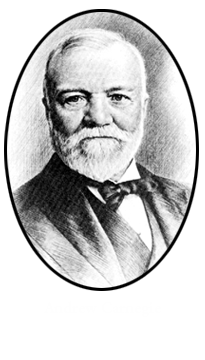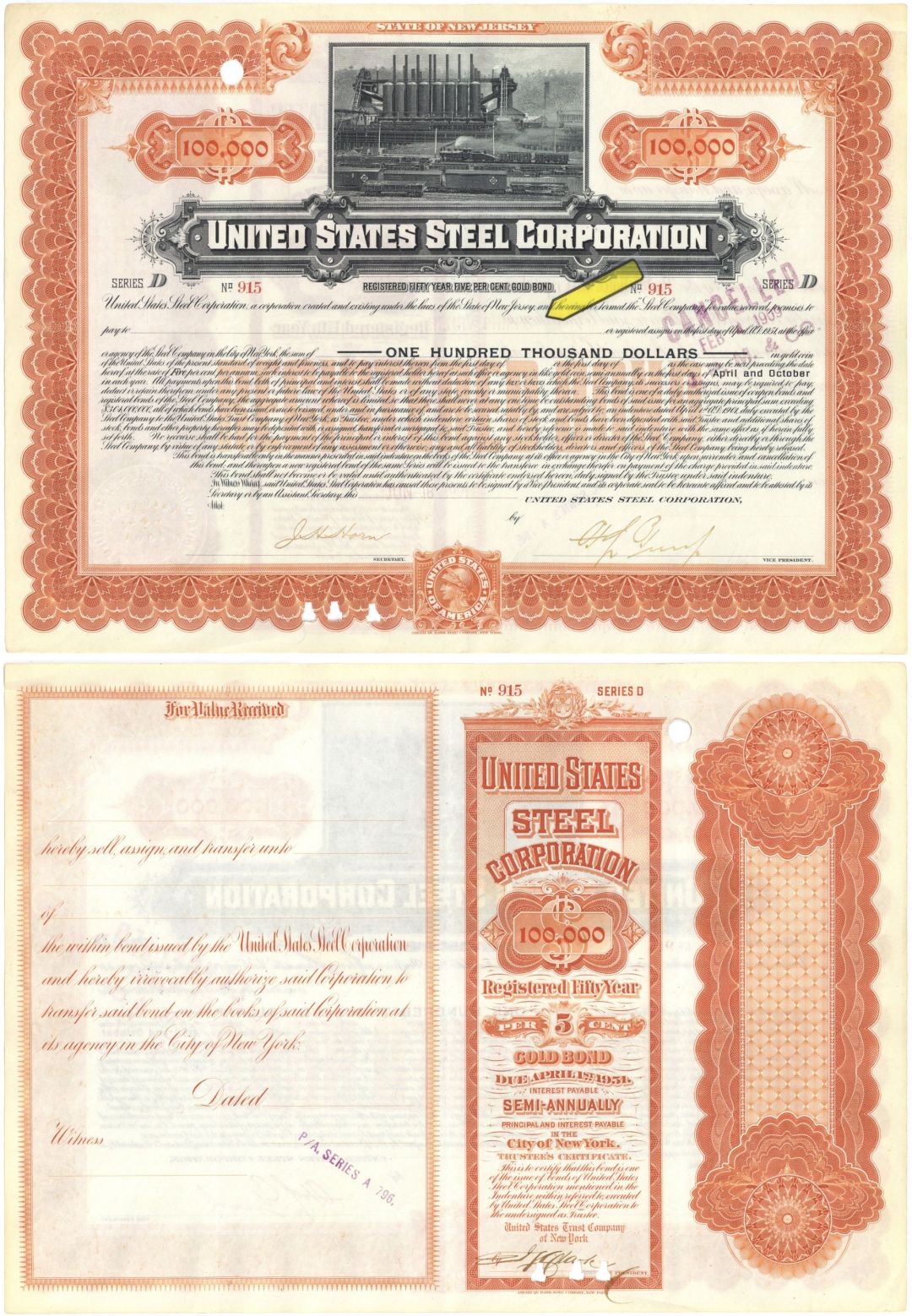Issued to Henry Phipps - United States Steel Corporation $100,000 Gold Bond - 1901 dated Orange Color Steel Bond - Faded Rubber Stamps
Inv# AG1022D BondA historic bond, dated 1901—the same year Carnegie divested his company—represents a remarkable $100,000 5% United States Steel Gold Bond issued to Henry Phipps. The scarcity of any Carnegie stocks and bonds is well acknowledged; previously, two signed Andrew Carnegie examples of this bond were sold to collectors for $125,000 each. The bond is meticulously stamped and hole-cancelled, showcasing exceptional graphics and a striking orange hue, and is in pristine condition. Extremely Historic!

Henry Phipps Jr. (September 27, 1839 – September 22, 1930) was a prominent American businessman recognized for his partnership with Andrew Carnegie and his role in the Carnegie Steel Company. Additionally, he was a successful investor in real estate. After divesting his shares in Carnegie Steel, he dedicated significant time and resources to philanthropic endeavors. In 1865, Phipps partnered with his childhood friends and neighbors, Andrew (1835–1919) and Thomas Carnegie (1843–1886), to establish the Union Iron Mills. This venture resulted from a merger between Phipps' Kloman & Phipps and the Cyclops Iron Company, in which the Carnegies had invested. Initially, Kloman and Phipps were hesitant, but Thomas Carnegie proposed acquiring all shares in Cyclops along with an extra payment of $50,000 (equivalent to $1,027,000 in 2024). Consequently, the Union Iron Mills Company was established on May 1, 1865.
The following year, Phipps and Carnegie toured Europe, and upon their return in 1866, they commenced work. Phipps worked diligently for the next two decades, demonstrating his financial acumen and becoming Carnegie's partner in the Carnegie Steel Company, founded in 1892. He amassed considerable wealth, becoming the second-largest shareholder in the company. In 1901, Carnegie Steel Company was sold to the newly formed United States Steel Corporation, established by Pierpont Morgan, for $400 million (approximately $13.3 billion today), with Carnegie receiving $226 million and Phipps $48 million. In 1907, Henry Phipps founded the Bessemer Trust Company to oversee his significant assets, which were intended to be inherited by his children after his passing and that of his wife.
A bond is a document of title for a loan. Bonds are issued, not only by businesses, but also by national, state or city governments, or other public bodies, or sometimes by individuals. Bonds are a loan to the company or other body. They are normally repayable within a stated period of time. Bonds earn interest at a fixed rate, which must usually be paid by the undertaking regardless of its financial results. A bondholder is a creditor of the undertaking.











Ebay ID: labarre_galleries